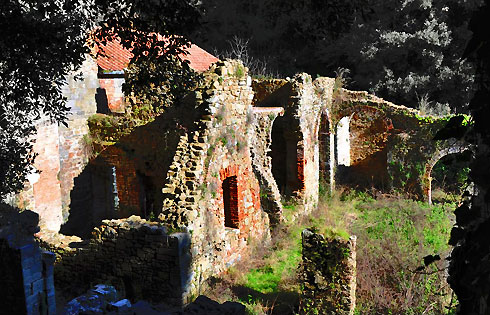In 1987, Robert Bork became the target of an organized, special interest smear campaign aimed at ruining his chances for being confirmed by the Senate as a Supreme Court justice. Since then, a tit-for-tat approach has made Supreme Court appointments a political football.
These politicized Supreme Court nomination battles have eroded public support of the high Court and a study of public reactions during the Samuel Alito nomination process shows it is only going to get worse.
In a new book, researchers reveal how television advertisements that opposed Alito's nomination in 2005 had a disturbing side effect: Many people who viewed those highly political ads become less supportive of the Supreme Court as an institution.
A completely new species has been discovered in the Russian mountains!
Sorry, it's not Bigfoot or Yeti or Abominable Snowman or Bumble or whatever he is called where you are from, though "Bigfoot Found!" on the cover with a big "No" inside would certainly be a strategy worthy of some other science publications.
Instead, it is a much more scientific discovery; a plant root. Professor Hans Cornelissen and his Russian-Dutch team describe this finding in Ecology Letters.
The root belongs to the small alpine plant Corydalis conorhiza and unlike normal roots, which grow into soil, they extend upward through layers of snow. Given this novel behavior, the scientists have termed them 'snow roots'.
Researchers here have used sediment from the deep ocean bottom to reconstruct a record of ancient climate dating back more than 500,000 years. The data were extracted from the top 65 feet of a 1,312 foot sediment core drilled in 2005 in the North Atlantic Ocean by the Integrated Ocean Drilling Program.
The results provide some new information about the four glacial cycles that occurred during that period. While climate records from ice cores can show resolutions with individual annual layers, ocean sediment cores are greatly compressed with resolutions sometimes no finer than millennia.
The interstellar stuff that became incorporated into the planets and life on Earth has younger cosmic roots than theories predict, according to the University of Chicago postdoctoral scholar Philipp Heck and his international team of colleagues.
Heck and his colleagues examined 22 interstellar grains from the Murchison meteorite for their analysis. Dying sun-like stars flung the Murchison grains into space more than 4.5 billion years ago, before the birth of the solar system. Scientists know the grains formed outside the solar system because of their exotic composition.
Is Internet expression a fundamental right? Certainly a subset of the modern generation has demonstrated an irrational sense of entitlement about free content, to the detriment of media companies that have tried to provide it like the New York Times, but parts of copyrighted material have always been allowed under fair use. What if court interpretation of fair use has changed?
University of Arkansas law professor Ned Snow says current judicial interpretation of fair use, a 150-year-old doctrine that allows people to use copied material in their speech, has become so constricted that it inhibits speech.
Scientists say they have succeeded in treating immune cells in a way that enables them to inhibit unwanted immune reactions such as organ rejection. Their results have now been published in the Journal of Cellular and Molecular Medicine.
The immune system keeps us healthy: day and night it protects us against invading and harmful pathogens. But this fulltime surveillance can also turn into a problem, for example after an organ transplant. The immune system recognizes the new organ as "foreign" and starts fighting it. In the end, the life-saving transplant will be rejected. Until now, only special drugs have managed to keep the immune system silent and thus inhibit organ rejection.
 The Scorched Cherry Twig And Other Christmas Miracles Get A Science Look
The Scorched Cherry Twig And Other Christmas Miracles Get A Science Look $0.50 Pantoprazole For Stomach Bleeding In ICU Patients Could Save Families Thousands Of Dollars
$0.50 Pantoprazole For Stomach Bleeding In ICU Patients Could Save Families Thousands Of Dollars Metformin Diabetes Drug Used Off-Label Also Reduces Irregular Heartbeats
Metformin Diabetes Drug Used Off-Label Also Reduces Irregular Heartbeats  Your Predator: Badlands Future - Optical Camouflage, Now Made By Bacteria
Your Predator: Badlands Future - Optical Camouflage, Now Made By Bacteria









